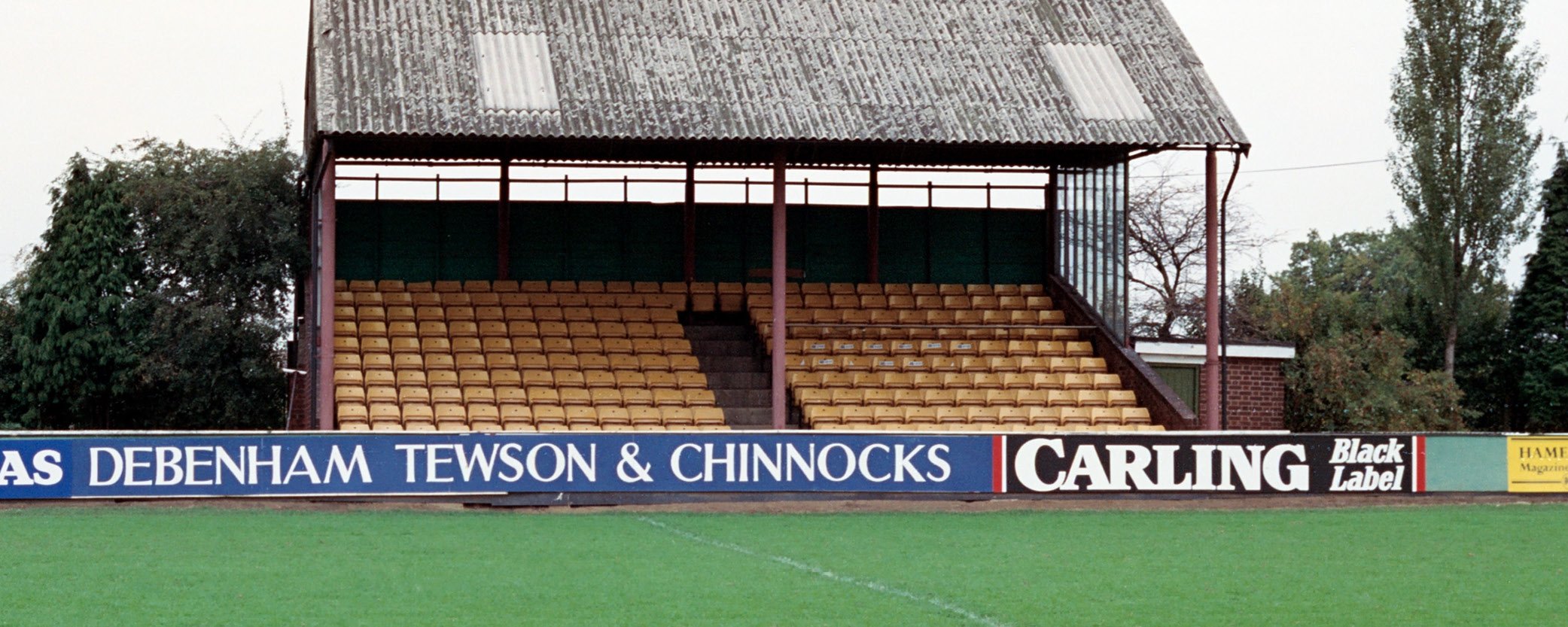
Rectory Field, Blackheath RFC, 1883-2016
The tale of Blackheath FC is as almost as old as of the that of rugby itself, and with that comes a ground with as much history as any. This is the story of Rectory Field.
Stade des Ponts Jumeaux, Stade Toulousain, 1907-1980
While the five-time European champions today play at Stade Ernest Wallon, it’s actually the club’s third home, with Stade des Ponts Jumeaux arguably their most famed.
Coundon Road, Coventry Rugby, 1921-2004
Several non-descript apartment blocks occupy the site where the famous Coundon Road once stood, only the streets named after George Cole and David Duckham give a hint to its former glories.
College Grove, Wakefield RFC, 1935-2004
It’s 2004, the last game of National League One. Wakefield and Coventry know whoever loses goes out of business. Wakefield lose, and College Grove hosted rugby union for the last time.
Beacon Park, Plymouth Albion, 1919-2003
Home to Plymouth Albion for 84 years, it was a 'magical place' for former Bath and England hooker Graham Dawe, who enjoyed many good times on this iconic Devon ground.
Brierton Lane, West Hartlepool, 1970-1999
When the final whistle went in West Hartlepool’s 11-10 win against London Scottish in April 1998 little did any of those watching know it would be the home side’s last game there.
Bramley Road, Saracens F.C., 1939-1996
Unlike our other Ghost Grounds, rugby still takes place weekly on the fields of Bramley Road, and the club colours, and even their name, still grace the shirts of home side Saracens Amateurs.
Edge Hall Road, Orrell RUFC, 1950-2007
If things had gone differently for Dewi Morris’s Orrell, Edge Hall Road would have been home to the 1991/92 English champions. However, defeat to Wasps cost them the title on the final day.
The Reddings, Moseley RFC, 1883-2000
As amateur-era grounds go, few were as tough as The Reddings. Home of Birmingham club Moseley RFC, even the mighty All Blacks fell to defeat here. Twice.
Repton Avenue, Wasps R.F.C., 1923-1996
Almost three decades have passed since Wasps played at Repton Avenue, but the clubhouse that has been enjoyed by countless legends of the game still stands, albeit in a rather different guise.
County Ground, Exeter Chiefs, 1893-2006
The smell of fuel still hung in the air from the night before. Picking their way through burnt-out clutches were Exeter RFC, making their way to training at the club’s historic County Ground.
Ireland Avenue, Nottingham R.F.C, 1904-2004
Ireland Avenue was Nottingham’s home for over a century, hosting infamous fixtures throughout the decades and was home to countless elite players, Brian Moore and Rob Andrew among them.
Stradey Park, Llanelli Scarlets, 1879-2008
It was the oldest stadium in Wales when it was demolished. It hosted early internationals, witnessed David versus Goliath wins and served as a beloved fortress for a century.
The Avenue, London Irish R.F.C., 1931-1999
On the southern banks of the Thames, between the famous tracks at Kempton Park Racecourse and Charles I’s old hunting ground, once stoodd The Avenue, the spiritual home of London Irish.
Chandos Park, Roundhay R.U.F.C., 1932-2007
Union has long been a ‘minority’ sport in the north, but there was a time when minnows Roundhay produced international talent and competed with the best from Chandos Park.
Memorial Ground, Bristol RFC, 1921-2013
Bristol is a place famous for many things, and high on that list is its contribution to English rugby. For a long time, the Memorial Ground in Horfield was the rugby epicentre of this great city.
Waterton Cross, South Wales Police RFC, 1969-2012
In its pomp, Waterton Cross was the epicentre of the Welsh game. Now, it houses a long-disused diesel train, a shuttle bus and a set of rusty posts that have met similar fates to itself.
Sharmans Cross Road, Birmingham & Solihull RFC, 1989-2010
When Harlequins visited for the 2005/06 National Division One opener, they boasted World Cup winners and South African captains; the Bees had a wine salesman and an aircraft engineer.
Landseer Avenue, Dings Crusaders, 1948-2017
A windowless clubhouse, a single changing room, a sloping pitch and a strict no cancellation policy, Landseer Avenue was an intimidating ground for any Dings Crusaders opponent.
Claro Road, Harrogate RUFC, 1896-2015
Where Harrogate called home for almost 120 years, and Yorkshire where Geoff Cook’s England came to train, streets named after former players are the only reminders of the history beneath.





















